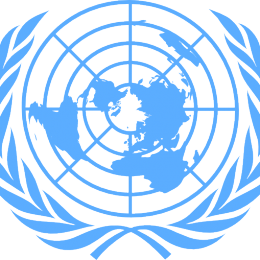In 1945, the United Nations was founded by 51 separate countries to secure peace in a world torn apart by two world wars. Today, 193 countries hold membership and several others enjoy observer status. For over seven decades the UN has been committed to promoting human rights, diplomacy, and peace. The nature of the UN general assembly allows it to act as a literal “world stage” for diplomats and leaders to express their respective nation’s concerns and represent them authentically. It seems apparent that one would want to show a certain decorum at the UN, and that how we do indeed represent ourselves is vitally important to our relationship with the international community. It is for this reason that I can not support our President’s recent actions at the 72nd general assembly.
A few weeks ago our President exchanged soft threats with North Korean leader, Kim Jong Un. The tense situation was instigated by nuclear weapon tests from the Democratic People’s Republic of Korea (DPRK) that were followed with boasts that such weapons could and would threaten American soil. As is standard with the current US administration, the white house opted for a show of strength by making preparations for possible military engagements on the Korean peninsula. The President felt that this warranted military action needed his own personal touch by tweeting about the superiority of the US military and criticized China for not “helping” the US with the situation. He also chose to call the DPRK’s bluff by dismissing their claimed nuclear readiness.

At the 72nd general assembly, the President made more remarks concerning the situation, referring to the North Korean leader as “rocket man” and threatening to “completely destroy” the DPRK. He followed these threats by again criticizing the international community for lack of military involvement, unfair trade agreements, and for generally taking advantage of the United States. The President echoed his own campaign rhetoric by claiming to always put “America first.” Supporters of his have praised these brash actions as bold and courageous, which is hardly surprising given the precedent set during the election. I myself do not share this sentiment.
The President’s actions range from irresponsible to blatantly dangerous. Regardless of our ability to “win” military conflict, this should not be something taken lightly. To provoke an already tense situation is hubris of the highest degree, and I am afraid that our President is more concerned with appearing tough than he is with making responsible foreign policy decisions. I hope I am wrong. The other issue with this situation is the underlying current of American exceptionalism and general disregard for the international community. While you and I might be safe here on the East Coast, there are 50 million people living in South Korea. Did the lives of those people cross the President’s mind when he so callously threw around violent threats? He does this while pushing away our allies and trading partners. Supporters have praised his “anti-globalist” agenda, but what does that mean for international relations? Yes, we live in a relatively peaceful time, but that peace is not invulnerable. It is unwise to pretend we can prosper independently of the rest of the world while economic decline, climate change, and other global issues loom on the horizon. The United Nations in its ideal is a way we can sustain peace and diplomacy, something our current President seems to desparately need. The United States must be careful about how we present ourselves on the world stage.
Sources: United Nations, CNN, Twitter (Trump)
